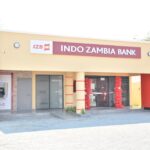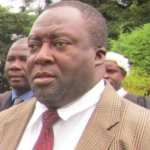By BARNABAS ZULU
PRESIDENT Hakainde Hichilema has continued on his crusade of calling for national unity and has vehemently rejected tribal divisions, emphasising that no single ethnic group owns Zambia is larger than other ethnicities
President Hichilema, a strong advocate of a peaceful and united Zambia says he has worked hard to unite the country and foster national development across the country without any form of discrimination.
President Hichilema made the remarks during a special meeting with traditional leaders held at Mulungushi International Conference Centre in Lusaka yesterday.
In his address, Mr Hichilema said the government has adopted a deliberate approach to promote inclusiveness and foster unity among the country’s diverse communities, for only then would social and economic development be possible.
“We have taken a deliberate decision to keep this country united,” he said. “We need unity in our country – to keep this country consciously, not subconsciously. We must remember that we have one country that God gave to us. Unity is important for development….there will be no development without unity. Two legs…unity and development”
President Hichilema reminded the traditional leaders drawn across all the chiefdoms that Zambia was home to over 72 ethnic groups, all of whom shared equal ownership and responsibility to the nation.
“All of us – 72, 73 ethnic groups – own this country equally. There is no ethnic group which owns the country more than the others,” Mr Hichilema declared.
The President proceeded to name several ethnic groups to underscore his message of inclusion, unity and harmony.
“The Tabwa own this country, the Ushi, the Mambwe, the Namwanga, the Lungu – they all own this country. The Kwamashi, the Nyengo, the Subiya own this country. Ba Kaonde, ba Swaka, ba Lala, Chewa, Toka, Lenje – everybody,” President Hichilema said.
He also addressed a common misconception about certain eastern tribes.
“My beloved Tumbukas – many don’t know the difference between Senga and Nsenga – but the two are different, and they both own this country,” he said. “The Sala, the Ila, the Chikunda – there is no small group. They all own this country.”
President Hichilema emphasised that the unity being promoted was not symbolic, but foundational to the country’s development agenda.
“I emphasise this point because your government has taken a particular, deliberate approach,” he said. “The Bemba, the Tonga, everybody – we must work together as one, in unity. And unity for what? For development.”
The President’s remarks come at a time when tribal sentiments have occasionally emerged in public discourse, and his message appears aimed at reinforcing national identity over ethnic allegiance.
And President Hichilema was not amused that while the national anthem was being played, some traditional leaders remained seated, stating that it was disrespect for the country’s national values.
“By the way, when we were singing the national anthem, I saw some traditional leaders remain in their seats. Let us respect our national values. We should all stand when singing the national anthem,” Mr Hichilema said.










